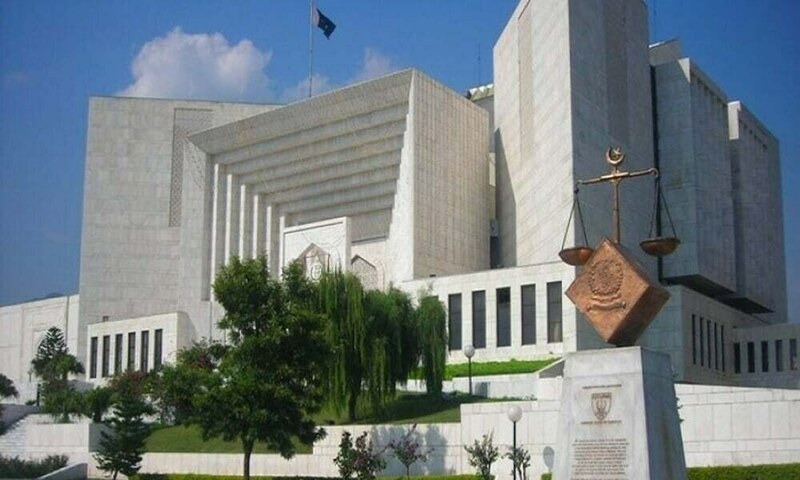By Terence J Sigamony
Copyright brecorder

ISLAMABAD: Supreme Court Judge Justice Jamal Khan Mandokhel observed that the government puts an extra burden on the masses in the form of new taxes to cover up its failures.
A five-judge larger bench, headed by Justice Amin-ud-Din Khan, on Tuesday heard the appeals of the Federal Board of Revenue and industries against the levy of Super Tax (on high-earning persons) under Section 4C of the Income Tax Ordinance 2001, inserted vide Finance Act, 2022.
Justice Hassan Azhar Rizvi, another member of the bench, remarked that in 2022 the new (PDM) government failed to control the economic crisis, imposed this [super] tax on fertilizer, cement, iron, airlines, LNG, oil marketing, oil refineries, pharmaceutical companies, and tobacco industries, adding that all these entities manufacture consumer goods. He stated that levying extra tax on these industries has increased the prices of household items.
SC CB asks whether super tax is a ‘tax’ or ‘fee’
Justice Azhar noted that at that time, the strength of the National Assembly and the opposition was half. Justice Mandokhel stated; “You (government) cause loss to the national exchequer and then its burden was put on the masses.”
Justice Muhammad Ali Mazhar asked Asma Hamid, who represented the FBR that you have to satisfy the Court why certain industries were segregated. Why not the same rate of tax was not applied to all the industries? How is this segregation justified? Justice Mazhar further remarked that when the rates of taxes are increased, the businessmen pass on the buck to consumers. Why was a 6 percent extra tax charged on certain industries?
Asma Hamid responded that these companies, during the worst COVID period benefited and earned huge profits due to high exchange rates and other factors.
She informed that in 2021, it was observed by the department that certain companies’ profits escalated by 200 percent to 800 percent. She submitted that all the High Courts have okayed the Super Tax 2023, but rendered adverse findings on the Tax 2022.
Justice Mandokhel stated that the Money Bill is always for the next year, and not for the previous year, so how could the Parliament give retrospective effect to the Money Bill? Asma argued that taxes could be void if they are not made by the competent authority or if there is a violation of fundamental rights.
Justice Mandokhel remarked that the moment the Money Bill is passed by the Parliament, the tax collection is started by the FBR. It had never happened that at the beginning of the Financial Year, the national kitty was empty. Once the accounting books are closed, the government can’t impose tax retrospectively.
Asma submitted that this is an established position of law that the Parliament has the power to levy tax retrospectively. She informed that the taxpayers have challenged the retrospectivity of the Super Tax 2022 before the apex court, while the department has filed the appeals against the High Courts’ ratio on Proviso II of Section 4C of the ITO. She argued that there is no restriction that Parliament can’t enact a law with retrospective effect.
The FBR lead counsel cited the judgments of the Supreme Court. She has completed contentions on ‘past and closed’ transactions, and the retrospectivity.
Earlier, Justice Mazhar questioned the intention of the legislature regarding the imposition of Super Tax 2022 from the previous year. He observed that the tax was passed by the Parliament on 1st July 2022, but its collection started from July 1, 2021.
Asma responded that there were judgments of the apex court about where the tax year would be counted. She stated that tax year 2022 covered the period of July 1, 2021, to June 30, 2022. She informed that a single judge bench of the High Court had allowed the imposition of tax with retrospective effect. Justice Amin observed that if this were allowed, it would authorize the Parliament to impose taxes for the last 10 years. The case is adjourned until Wednesday (Sept 10).
Copyright Business Recorder, 2025



